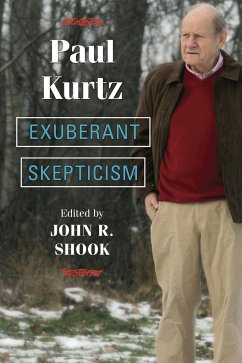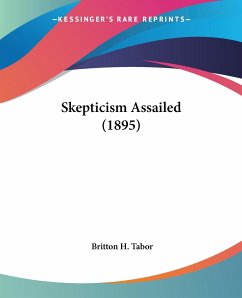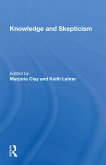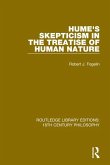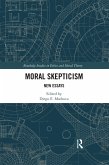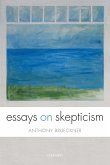For more than three decades, philosopher Paul Kurtz has been a strong advocate of skepticism, not only as a philosophical position, but also as a fulfilling way of life. Contrary to the view that skepticism is merely a negative, nay saying, or debunking stance toward commonly held beliefs, skepticism as defined by Kurtz emerges reborn as "skeptical inquiry"-a decidedly positive philosophy ready and able to change the world. In this definitive collection, editor John R. Shook has gathered together seventeen of Paul Kurtz's most penetrating and insightful writings. Altogether these essays build an affirmative case for what can be known based on sound common sense, reason, and scientific method. And as each essay cogently and convincingly explains, so much can be known, from the natural world around us to the moral responsibilities among us. The work is organized in four topical sections. In the first, "Reasons to Be Skeptical," Kurtz presents compelling reasons why the methods of inquiry used by the sciences deserve respect. In short, science provides reliable knowledge, without which humanity would never have emerged from the age of myth and widespread ignorance. In the second section, "Skepticism and the Non-Natural," Kurtz shows how skeptical inquiry can be fruitfully used to critique both paranormal claims and religious worldviews. He also investigates whether science and religion can be compatible. In the third section, "Skepticism in the Human World," he considers how skeptical inquiry can be applied to politics, ethics, and pursuit of the good life. Realizing the essential connections between scientific knowledge, technological power, and social progress, Kurtz has understood, as few philosophers ever have, how the methods of intelligence can be applied to all areas of human endeavor. The book concludes with Kurtz's authoritative reflections on the skeptical movement that he founded and has led. As he explains, the forces of blind faith and stubborn unreason still fight for control of the mind, so the skeptic can never rest. If there is a brighter future for humanity, a future in which every person enjoys a realistic opportunity for the pursuit of excellence, Kurtz's 'exuberant skepticism' can show us the way.
Hinweis: Dieser Artikel kann nur an eine deutsche Lieferadresse ausgeliefert werden.
Hinweis: Dieser Artikel kann nur an eine deutsche Lieferadresse ausgeliefert werden.

